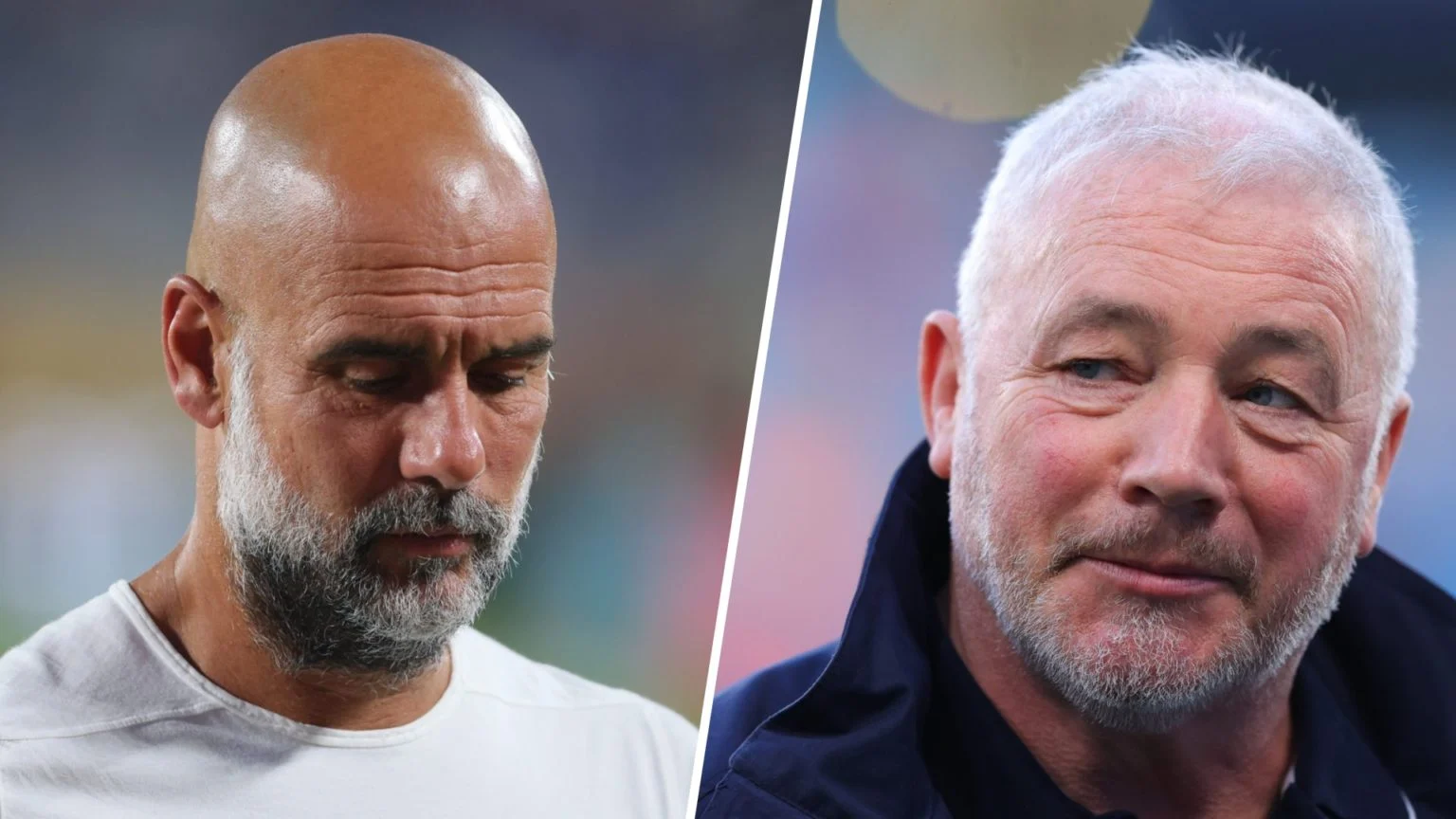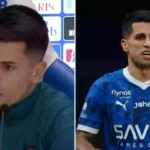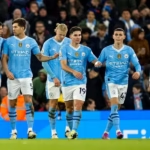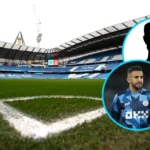Ally McCoist spots Man City’s ‘biggest problem’ after watching the highlights

The football world was left stunned on Monday night in Orlando as Manchester City, one of the Premier League’s most dominant forces, crashed out of the FIFA Club World Cup following a dramatic 4-3 extra-time defeat to Saudi Arabian side Al-Hilal. This unexpected result has sent shockwaves through the footballing community and raised serious questions about Pep Guardiola’s squad as they prepare for the upcoming Premier League season.
The Shocking Defeat That Changed Everything
Manchester City’s exit from the FIFA Club World Cup represents more than just a disappointing result; it serves as a stark reminder that even the most successful teams can be vulnerable when fundamental weaknesses are exposed. The match in Orlando showcased a side that, despite creating numerous scoring opportunities, failed to demonstrate the defensive solidity that has been the hallmark of Guardiola’s most successful campaigns.
The 4-3 scoreline tells only part of the story. While City showed their attacking prowess by finding the net three times, their inability to prevent Al-Hilal from scoring four goals highlighted defensive frailties that many observers thought had been resolved during the latter stages of the previous season. The defeat was particularly painful given that Guardiola’s men had every reason to believe they should have progressed to the quarter-finals based on the quality of chances they created throughout the match.
Bernardo Silva, one of City’s most experienced campaigners, didn’t mince words in his post-match assessment, pointing to the team’s inability to control transitions as a critical factor in their downfall. This observation from a player of Silva’s caliber and experience carries significant weight, particularly given his intimate knowledge of Guardiola’s tactical systems and expectations.
Expert Analysis: Ally McCoist’s Damning Assessment
Scottish football legend and respected pundit Ally McCoist has emerged as one of the most vocal critics of Manchester City’s defensive display, offering a detailed breakdown of what went wrong during the crucial encounter. McCoist’s analysis, delivered during his regular slot on talkSPORT, has resonated throughout the football community due to his reputation for insightful tactical observations and his ability to identify systemic issues within team structures.
Speaking on Tuesday morning, McCoist didn’t hold back in his assessment of City’s performance. “I’ve watched the highlights and I’ve watched the goals, and I think you’re right to flag up defensively, because looking at it, they still scored three goals City. You think normal circumstances, it should be enough to win a game of football,” he stated, immediately highlighting the contradiction between City’s attacking output and their defensive vulnerability.
The former Rangers striker was particularly critical of the second goal conceded by City, describing it as symptomatic of deeper defensive issues. “Was it the second goal? I think you mentioned straight through? Was it Leonardo? It’s just a simple ball over the top, and he’s actually through with the goalkeeper to beat, which he does,” McCoist explained, emphasizing how basic defensive errors can prove costly at the highest level of competition.
The Goalkeeper Conundrum: Ederson Under Scrutiny
One of the most significant aspects of McCoist’s critique focused on Brazilian goalkeeper Ederson, who has been a cornerstone of Manchester City’s success in recent years. However, the pundit’s observations suggest that the 31-year-old shot-stopper may be experiencing a decline in form at a crucial juncture in the season.
“But on top of that, I don’t think the goalkeeper looked clever. There were crosses where they were losing so many headers with crosses into the box,” McCoist observed, pointing to specific instances where Ederson’s decision-making and positioning appeared questionable. This criticism is particularly noteworthy given Ederson’s reputation as one of the Premier League’s most reliable goalkeepers over the past several seasons.
The goalkeeper’s struggles against Al-Hilal weren’t isolated incidents but rather part of a broader pattern that has emerged in recent months. City fans have been increasingly vocal in their criticism of Ederson’s performances, with many taking to social media platforms to express their frustration with his apparent decline in form. The Brazilian’s inability to command his penalty area effectively, particularly when dealing with crosses and set-piece situations, has become a recurring theme in City’s recent matches.
McCoist’s assessment carries additional weight because it comes from someone who understands the pressures and demands placed on goalkeepers at the highest level. His suggestion that Ederson “didn’t look clever” implies a lack of the instinctive decision-making that separates elite goalkeepers from their peers, particularly in high-pressure situations.
Historical Context: City’s Defensive Evolution Under Guardiola
To fully understand the significance of these defensive issues, it’s essential to examine Manchester City’s defensive evolution under Pep Guardiola’s stewardship. When the Catalan coach first arrived at the Etihad Stadium, one of his primary objectives was to implement a defensive system that would complement his possession-based attacking philosophy.
Throughout the early years of Guardiola’s tenure, City’s defense underwent numerous transformations as the manager sought to find the perfect balance between attacking ambition and defensive stability. The 2024/25 campaign initially appeared to continue this pattern, with City’s backline causing significant concern during the first half of the season.
However, what made the Al-Hilal defeat particularly frustrating for City supporters was the fact that Guardiola appeared to have found a solution to these defensive problems toward the end of the previous season. The partnership of Ruben Dias and Josko Gvardiol had begun to show real promise, offering the kind of stability and understanding that successful defensive partnerships require.
The regression displayed against Al-Hilal suggests that these improvements may have been more fragile than initially believed, raising questions about whether the defensive structure is truly robust enough to withstand the pressures of competing on multiple fronts throughout a demanding campaign.
Tactical Breakdown: Where It All Went Wrong
The tactical analysis of City’s defeat reveals several key areas where Guardiola’s system broke down against Al-Hilal. The most glaring issue was the team’s inability to cope with direct attacking play, particularly balls played over the top of the defensive line. This vulnerability is particularly concerning given that such tactics are hardly revolutionary and represent basic attacking strategies that City should be well-equipped to handle.
The second goal conceded by City, which McCoist highlighted in his analysis, exemplified this problem perfectly. A simple ball over the top caught City’s defensive line unprepared, allowing Al-Hilal’s Leonardo to run through on goal with only Ederson to beat. The Brazilian forward’s clinical finish was the least surprising aspect of the move, as the defensive error had already created an optimal scoring opportunity.
City’s struggles with aerial duels and crosses into the penalty area represent another significant tactical concern. Guardiola’s preference for technically gifted but sometimes physically smaller defenders can leave his teams vulnerable to direct aerial attacks, and Al-Hilal appeared to identify and exploit this weakness throughout the match.
The inability to control transitions, as identified by Bernardo Silva, points to a fundamental breakdown in City’s pressing and counter-pressing systems. Under Guardiola, City have typically excelled at winning the ball back quickly after losing possession, but against Al-Hilal, they frequently found themselves caught out of position during moments of transition.
The Transfer Window Implications
McCoist’s analysis concludes with a sobering assessment of what these defensive issues mean for Manchester City’s immediate future. “I think defensively would be his biggest problem, and it has given him (Pep Guardiola) a little bit of a headache, hasn’t it?” he stated, highlighting how this defeat has exposed problems that need urgent attention.
The timing of this revelation couldn’t be more significant, coming as it does during the summer transfer window when Guardiola still has opportunities to address these defensive shortcomings. The defeat against Al-Hilal has effectively served as a wake-up call, forcing the Manchester City hierarchy to confront the reality that their defensive structure may not be as solid as they had hoped.
Reports suggest that Guardiola is already looking to the transfer market for solutions, with particular emphasis on strengthening the right-back position. The emergence of Rayan Ait-Nouri as a potential left-back option during the Al-Hilal clash has highlighted the relative strength in that position, but the right-back role remains problematic.
Newcastle United’s Tino Livramento has been identified as Guardiola’s preferred target for the right-back position, though securing his services will prove challenging given Newcastle’s reluctance to sell key players and the considerable transfer fee that would be required to complete such a deal.
Looking Ahead: The Premier League Challenge
As Manchester City prepare for the upcoming Premier League season, the lessons learned from their FIFA Club World Cup exit take on increased significance. The defensive vulnerabilities exposed by Al-Hilal will undoubtedly be studied by Premier League opponents, who will be eager to exploit similar weaknesses when they face City in domestic competition.
The psychological impact of this defeat cannot be underestimated either. For a team accustomed to success and dominance, losing to a side that many would have expected them to beat comfortably represents a significant blow to confidence. How Guardiola and his players respond to this setback will be crucial in determining their prospects for the upcoming season.
The fact that City managed to score three goals against Al-Hilal demonstrates that their attacking capabilities remain largely intact. However, football at the highest level requires balance between attack and defense, and the current evidence suggests that this balance has been disrupted.
The Broader Context: Competition and Expectations
Manchester City’s FIFA Club World Cup exit must also be viewed within the broader context of increasing global competition and rising standards in football. Al-Hilal’s victory wasn’t simply the result of City’s defensive failings; it also reflected the growing quality and tactical sophistication of teams from leagues outside Europe.
This reality presents additional challenges for Premier League clubs, who can no longer assume that their superior resources and infrastructure guarantee success against international opposition. The global nature of modern football means that tactical innovations and playing styles are shared more rapidly than ever before, leveling the playing field in ways that might not have been possible in previous decades.
For Manchester City specifically, this defeat serves as a reminder that success requires constant vigilance and continuous improvement. The complacency that can sometimes accompany sustained success appears to have crept into their defensive play, and addressing this mindset will be just as important as making tactical or personnel adjustments.
Conclusion: Lessons Learned and Path Forward
Ally McCoist’s analysis of Manchester City’s FIFA Club World Cup exit has illuminated critical weaknesses that demand immediate attention from Pep Guardiola and his coaching staff. The defensive frailties exposed by Al-Hilal, combined with concerns about Ederson’s form, represent significant challenges that must be addressed before the Premier League season begins in earnest.
The defeat in Orlando, while disappointing, may ultimately prove beneficial if it serves as the catalyst for necessary improvements to City’s defensive structure. Guardiola’s track record suggests that he will use this setback as motivation to strengthen his squad and refine his tactical approach.
However, the clock is ticking. With the transfer window still open but time running out, City must act decisively to address these issues. The acquisition of a reliable right-back appears to be the immediate priority, though broader questions about defensive organization and goalkeeper form will require more nuanced solutions.
As Manchester City prepare to defend their Premier League title, they do so with the knowledge that their defensive vulnerabilities have been exposed on the global stage. How they respond to this challenge will determine whether this FIFA Club World Cup exit becomes a footnote in another successful season or the beginning of a more significant decline in their fortunes.
The eyes of the football world will be watching closely as Guardiola attempts to solve the defensive puzzle that Ally McCoist and others have identified as City’s biggest problem heading into the new season.















